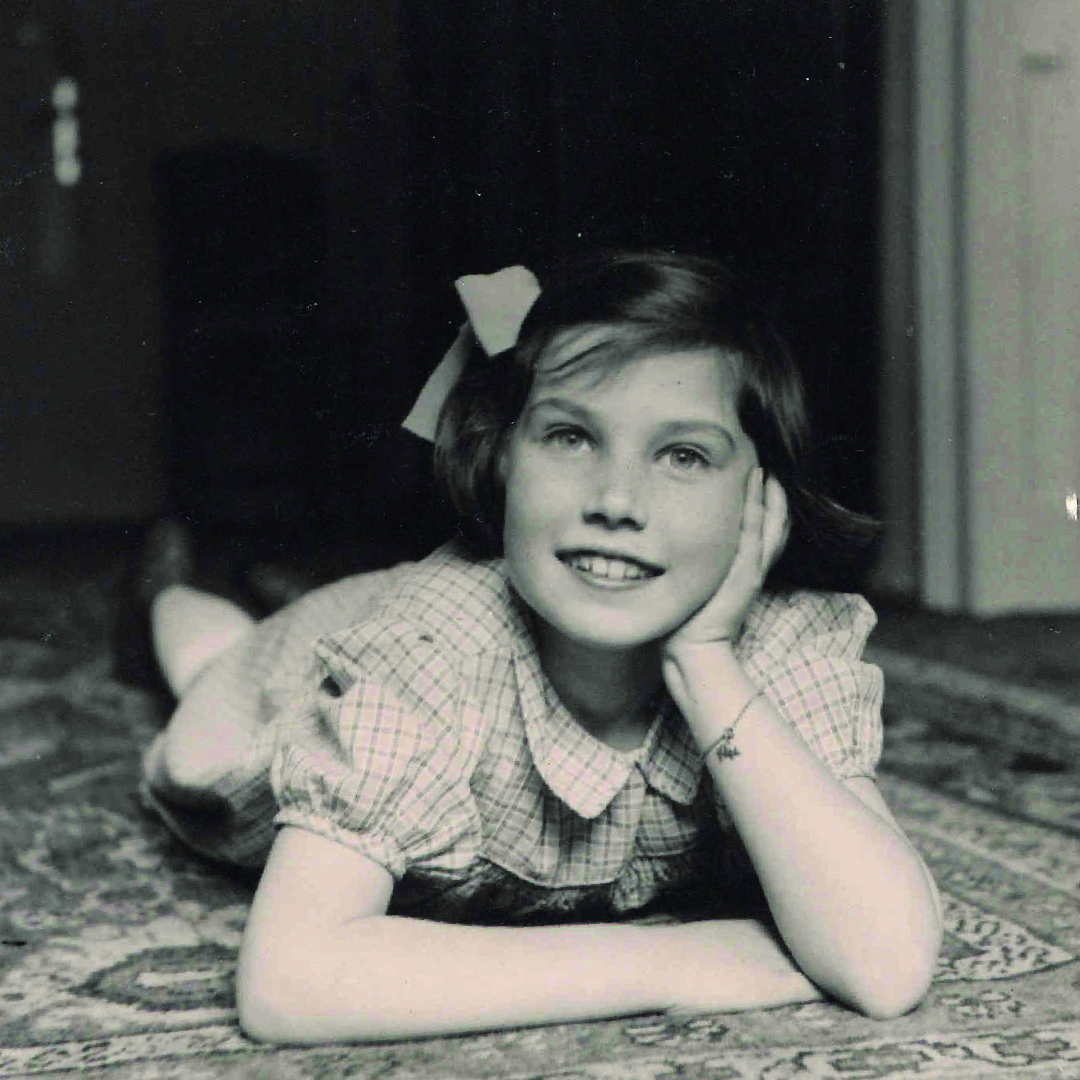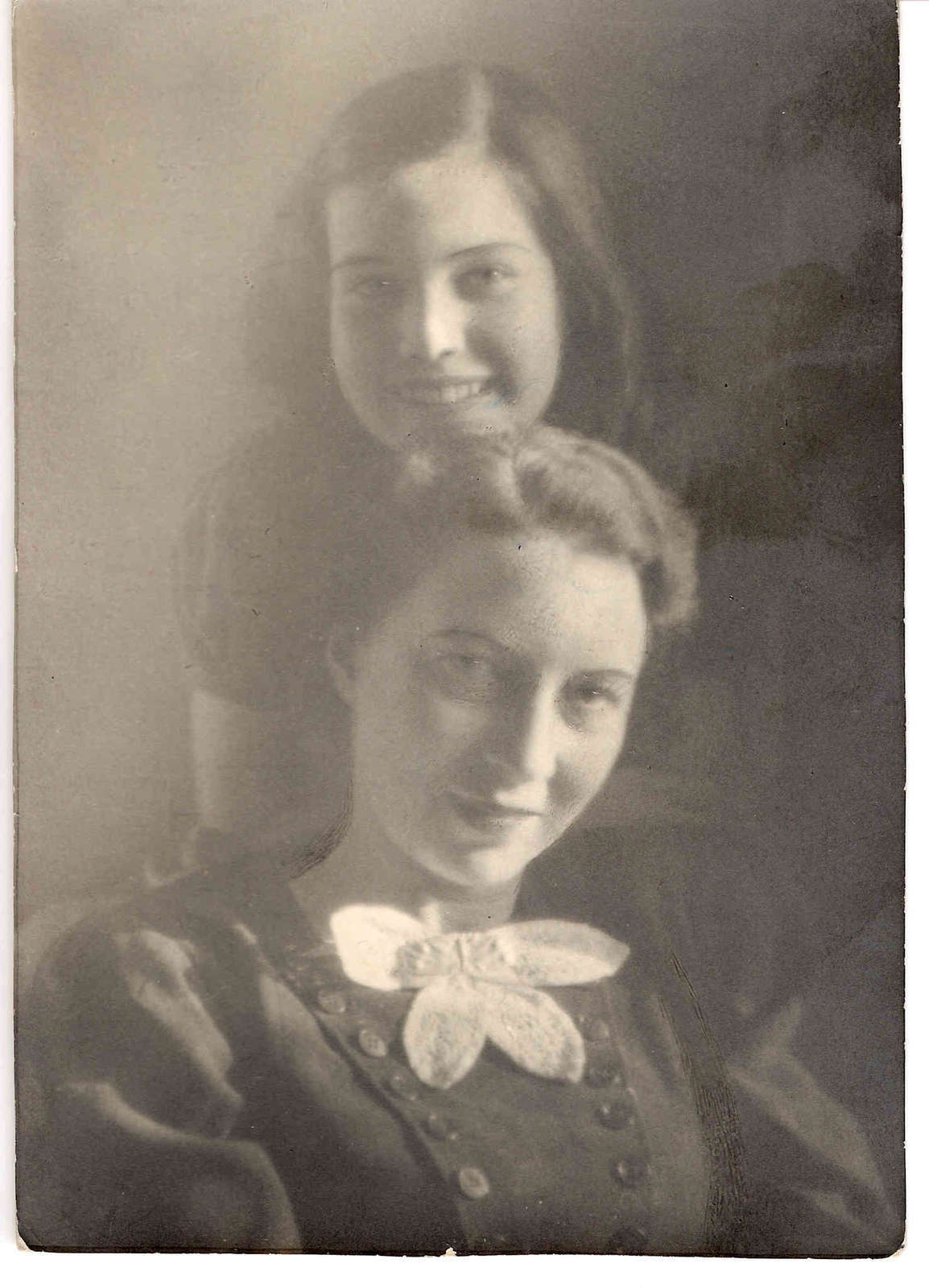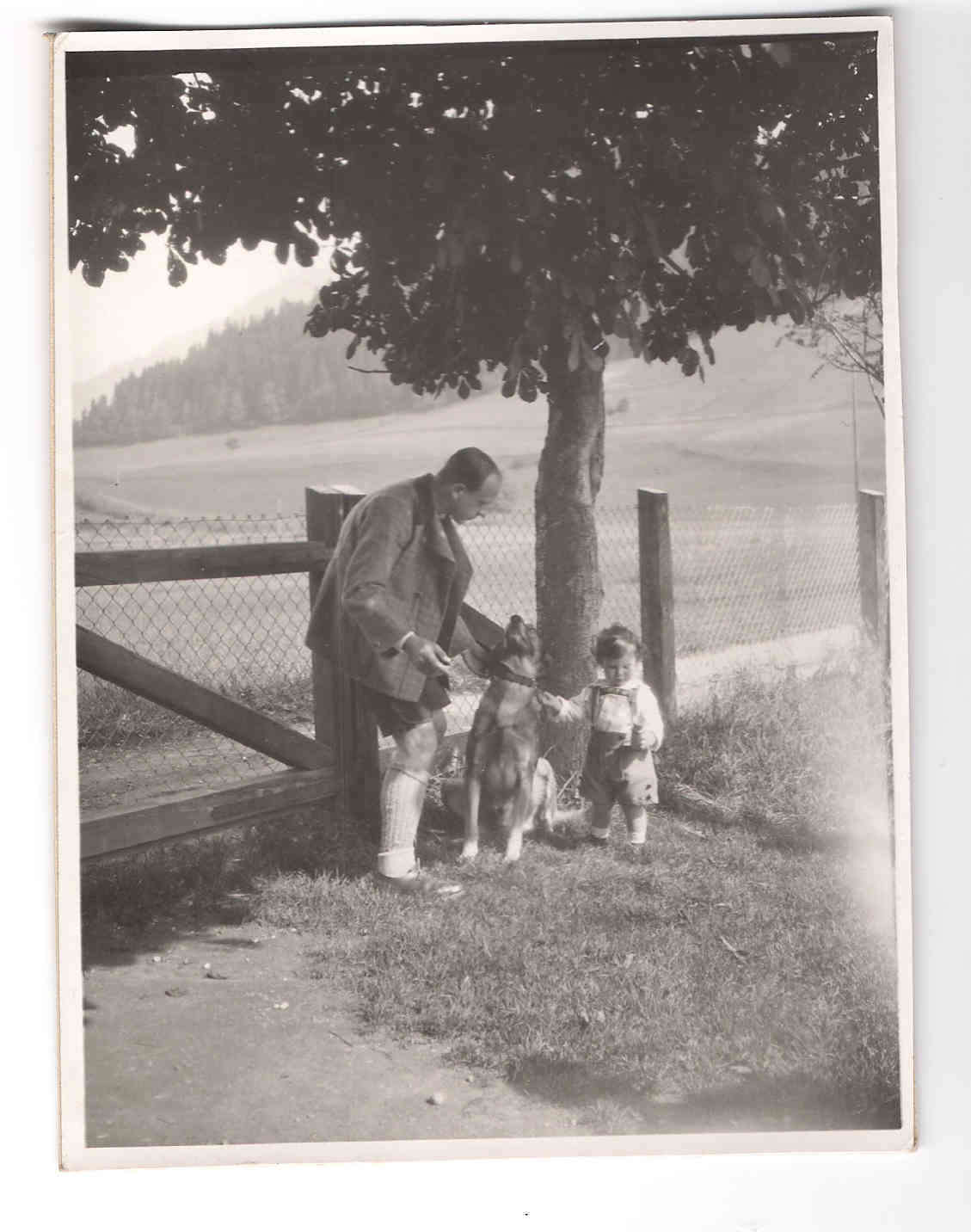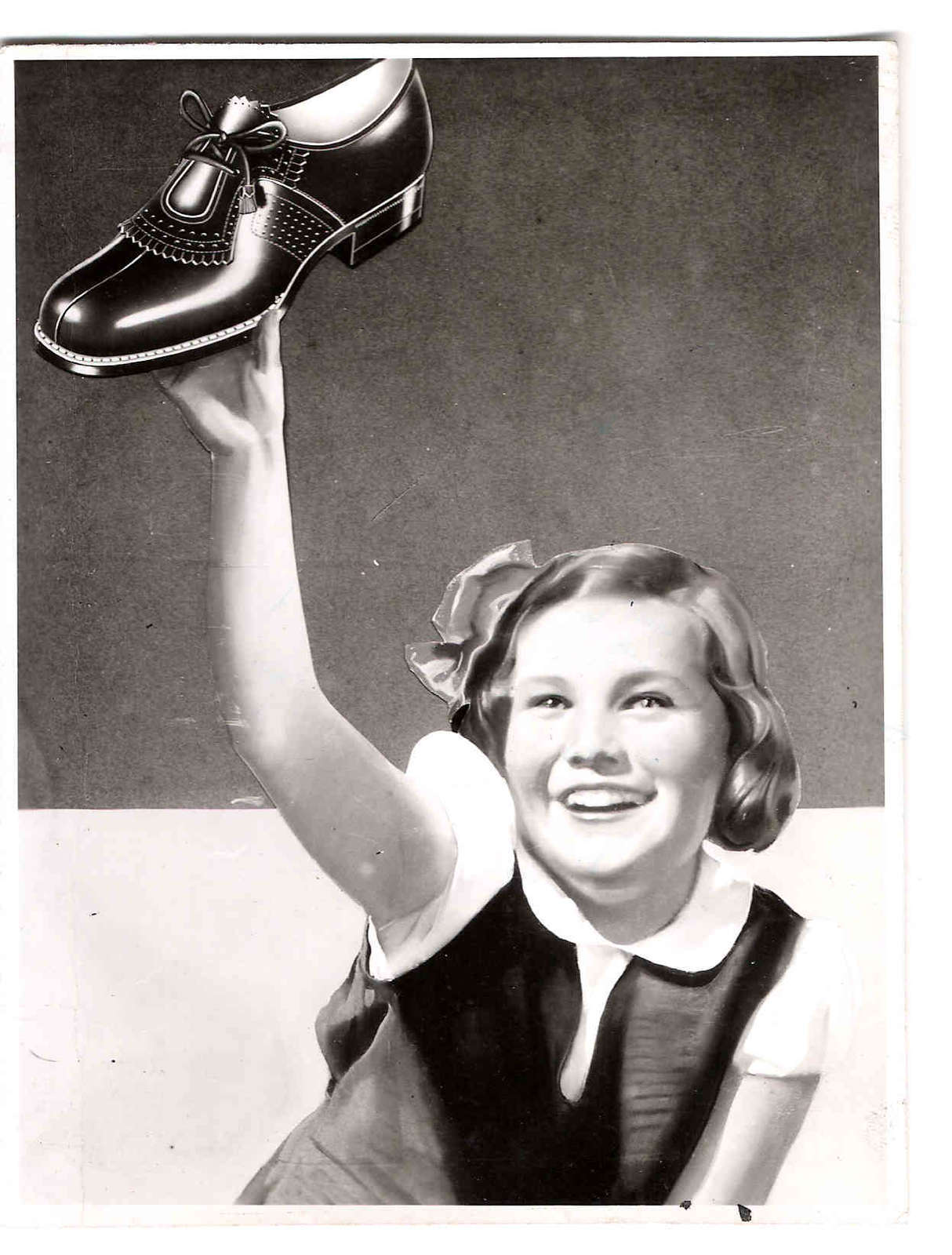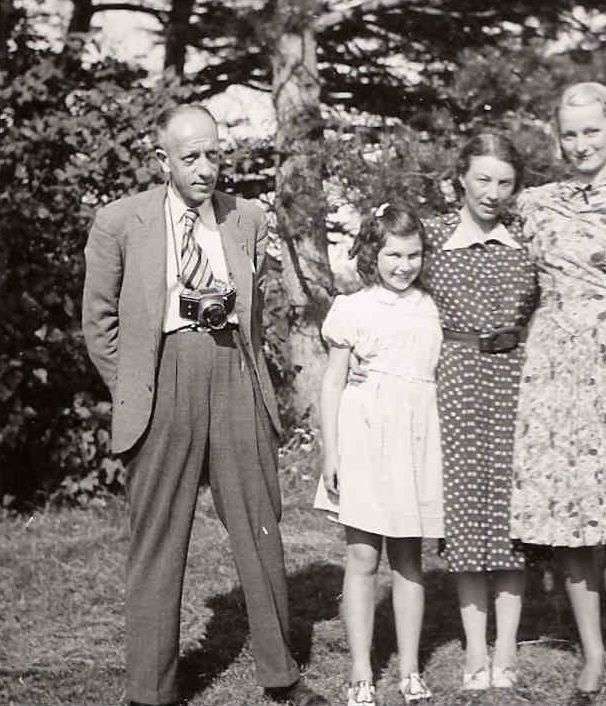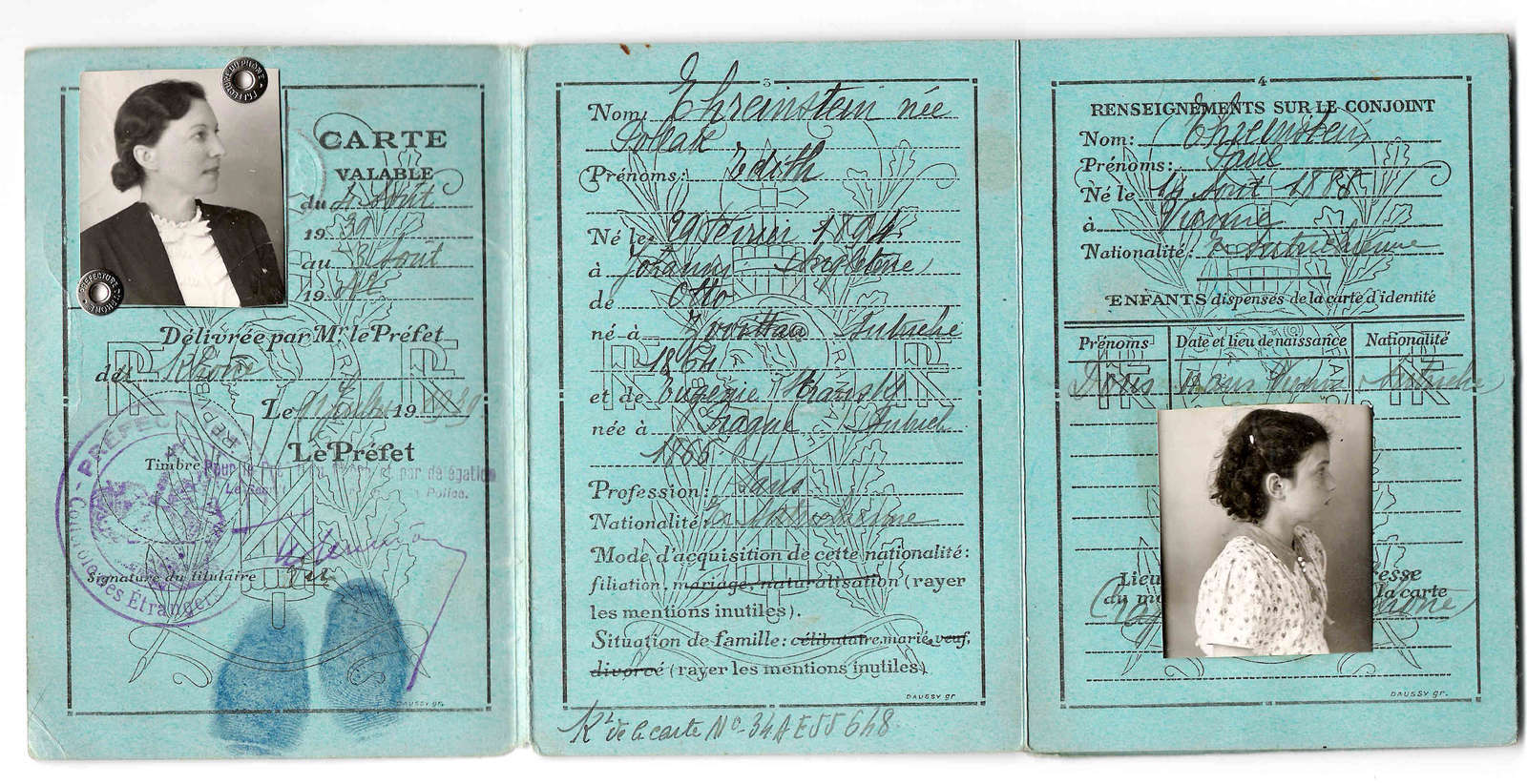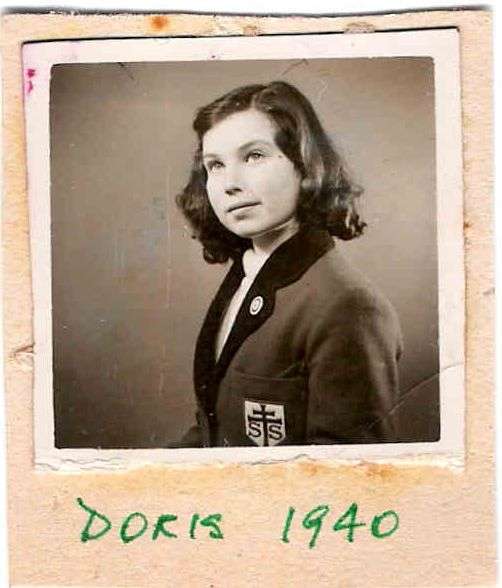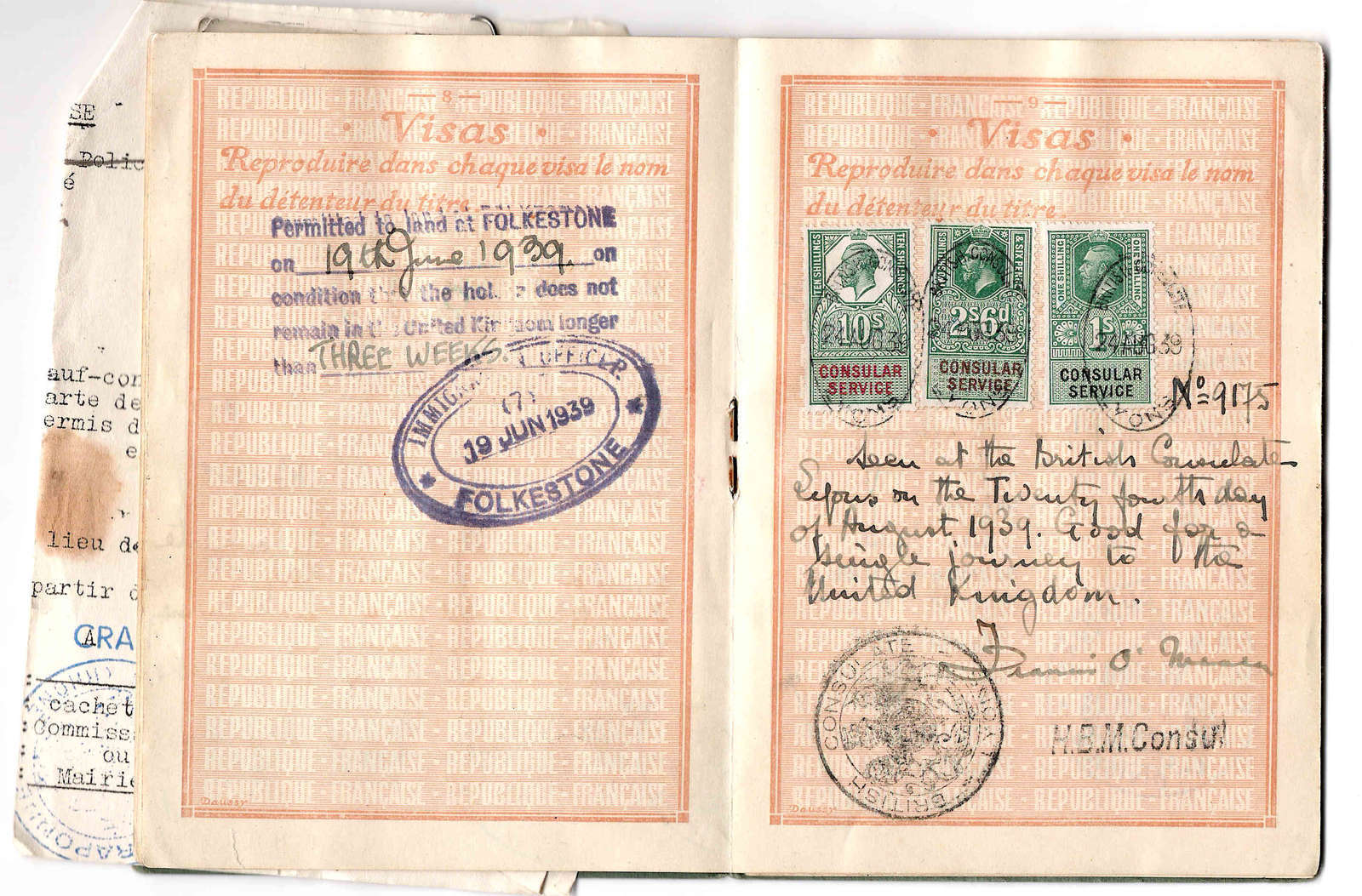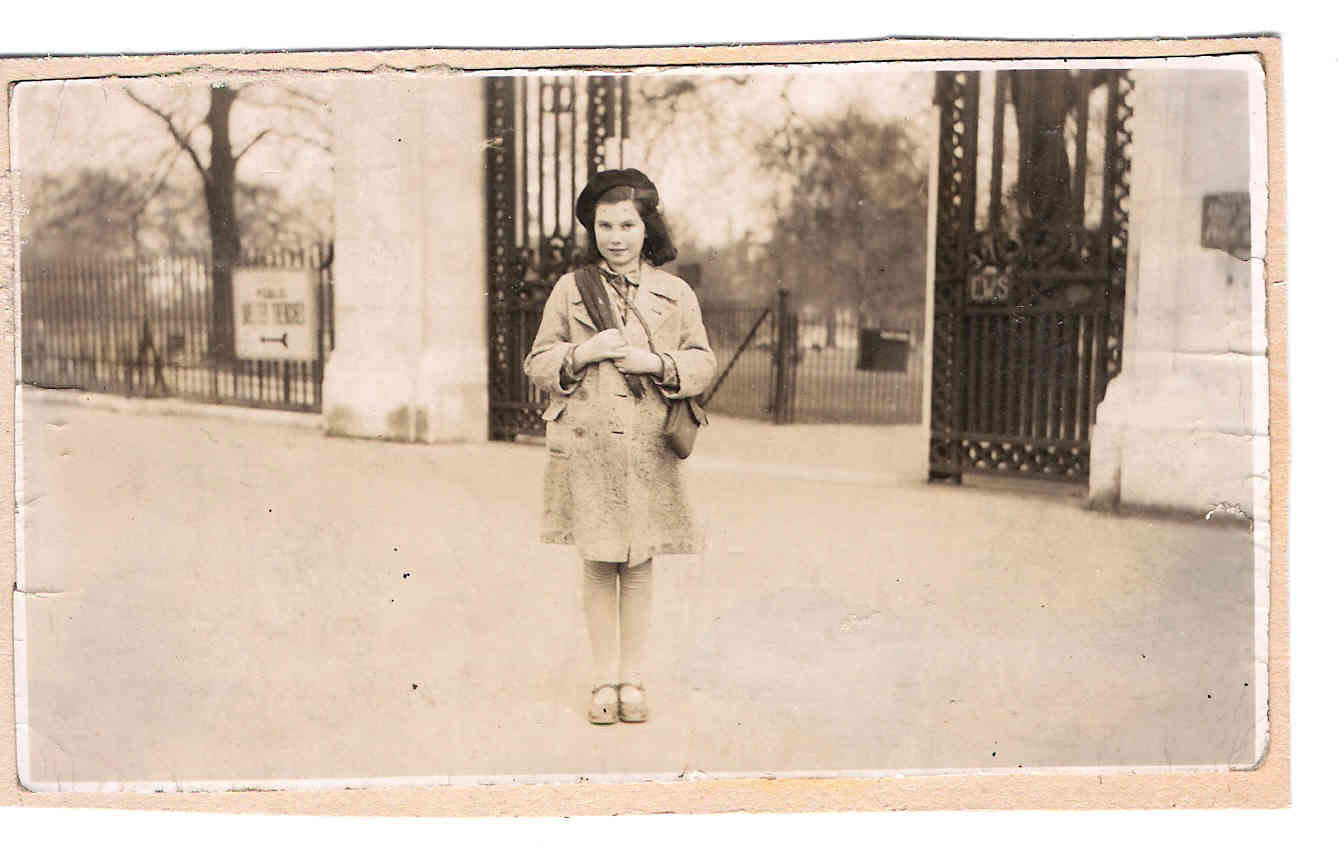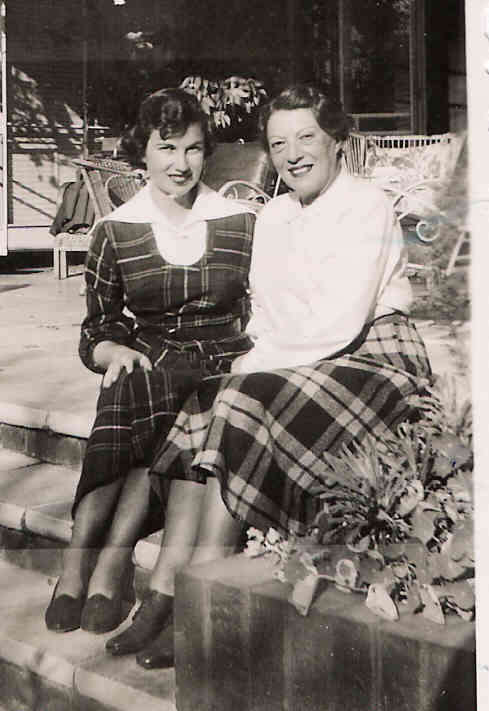Doris Lurie
Her passport was due to expire in two days ...
Doris Lurie was born Doris "Dossy" Ehrenstein in February 1928 in Vienna and had to leave Austria with her mother in 1938.
I was ten years old on 26th Feb. 1938. Some days before the "Anschluss" [1] I was no longer allowed to attend school. When Jewish-owned shops were attacked, when Jews were assaulted in the streets and forced to efface plebiscite slogans painted with indelible road paint, when it became suddenly dangerous to use public transport, my mother decided to leave Vienna.
My mother was a psychologist and was treating a young man from England. The day after the "Anschluss" my mother suddenly thought that should the need arise, she had better collect our passports from the lawyer. With the many new restrictions with respect to officialdom, her patient volunteered to accompany her to the lawyer's offices. There were already two men in Nazi uniform guarding the entrance to the lawyer's building, prohibiting entry. Her patient engaged them in conversation while she slipped through the gate.
Upstairs she found the office door ajar. Behind it sat the lawyer, ashen-faced and terrified that she had come. He told her that on pain of death he may not hand over any documents in his keep. She managed to persuade him to give her at least our passports, saying that no one will ever know ... On her way out of the building, her patient was still distracting the guards – they had not seen her. In the taxi on the way back to our apartment she checked the expiry date of her passport and found that it was valid for only two more days, the time needed to reach France where my father was working at the time. My mother and I had to leave immediately on the 16th March 1938. We locked up our apartment with all its contents and gave the keys to a friend. Apart from two small suitcases, we abandoned everything.
All communication with the outside world by phone or telegram was cut off during this period. No Austrians were allowed to leave the country any more. On that day, the last train left Vienna to repatriate foreign tourists. It was our only chance. We boarded without official permission. Soon after the journey began, a Gestapo man came to check our residential address in a very large, heavy book and crossed something out – presumably our name and address. He told us that we may never return to Austria. During the journey some Nazi youths came to our compartment. They proudly wore a swastika armband and threatened us with fists and guns, as well as with arrest "or worse" if we did not cooperate by handing over money, jewellery and papers. My mother had only her wedding ring and the 25 Schillings permitted travel allowance. Although we were both travelling with Austrian passports, my mother also showed her British passport which had become invalid when she married an Austrian. This confused the Nazi officials who harassed us.
After a harrowing journey, we arrived in Zürich and had just enough money left over to send a telegram to my father for money to continue the journey to France. He was shocked when told why we abandoned our home. We arrived in Lyon on 18th March 1938 to join my father. Soon I was sent to school until September 1939. When war broke out, everything changed again. As my father was Austrian, he was interned as an "enemy alien" [2]. There were rumours that women would also be interned while children would be sent to a separate camp [3]. With no means of support, we had to abandon our second home. We travelled to Paris to try to get him released, but to no avail.
As my mother's Austrian passport was no longer valid, a British consul provided us with a "travel document" entitling us to go to England. On Friday the 13th December 1939 we crossed the Channel [4], through a minefield. We stood on the deck wearing cork lifebelts, ready to jump into the icy sea, should the ship be blown up. We saw a mine right in the path of the ship. Just as we were going to collide, a destroyer came out of the thick fog and exploded the mine harmlessly. This was our second emigration.
We stayed with my mother's brother for a month, then went to London where my mother stayed in a small boarding house, her accommodation paid for by her brother. I went to a charity school for one month to learn English, then was accepted as a non-paying refugee at a school in Chelmsford, Essex. In May 1940 our school was bombed and we were evacuated to the west of England. With an Austrian passport we could not remain in Great Britain as my mother was not allowed to work and we had no income.
In early June another charitable organisation supplied us with two one-way tickets to South Africa where my mother was born. We left Southampton on 4th June 1940 on the "Winchester Castle" which was transporting 2000 troops and ammunition. The journey took three weeks. We travelled in convoy as German U-boats were following our ship. We arrived in Durban, South Africa on 27th June 1940, where an identity card was issued to me as a foreigner. This was our third emigration. By this time we were destitute.
My mother's relations had to guarantee a large sum of money for me – a child of twelve – so that I would not be a burden to the State. My mother who was in a poor state of health due to all the stress and deprivation, had to go out to work – hard physical work, in order to support us. Again I was accepted as a non-paying boarder, this time at Parktown Convent, Johannesburg, where I attended school for four and a half years, finishing in December 1944. In 1945 I entered the University of the Witwatersrand on a municipal bursary and completed my degree in science in 1948.
My mother's instinct and courage in leaving Austria so precipitously on 16th March 1938, was justified because otherwise we would have shared the fate of our many relatives who lost their lives in concentration camps.
[1] The "Anschluss" refers to the annexation of Austria and its integration into the German Reich on 13th March, 1938.
[2] With the outbreak of WW II, France considered all German citizens "enemy aliens" ("objets ennemis") and put them into special detention camps, e.g. in Les Milles, Le Vernet or St. Cyprien.
[3] This separate camp might have been Rieucros, a camp only for women and children.
[4] The English Channel was scene of fierce battles between the German and British/US navies.


